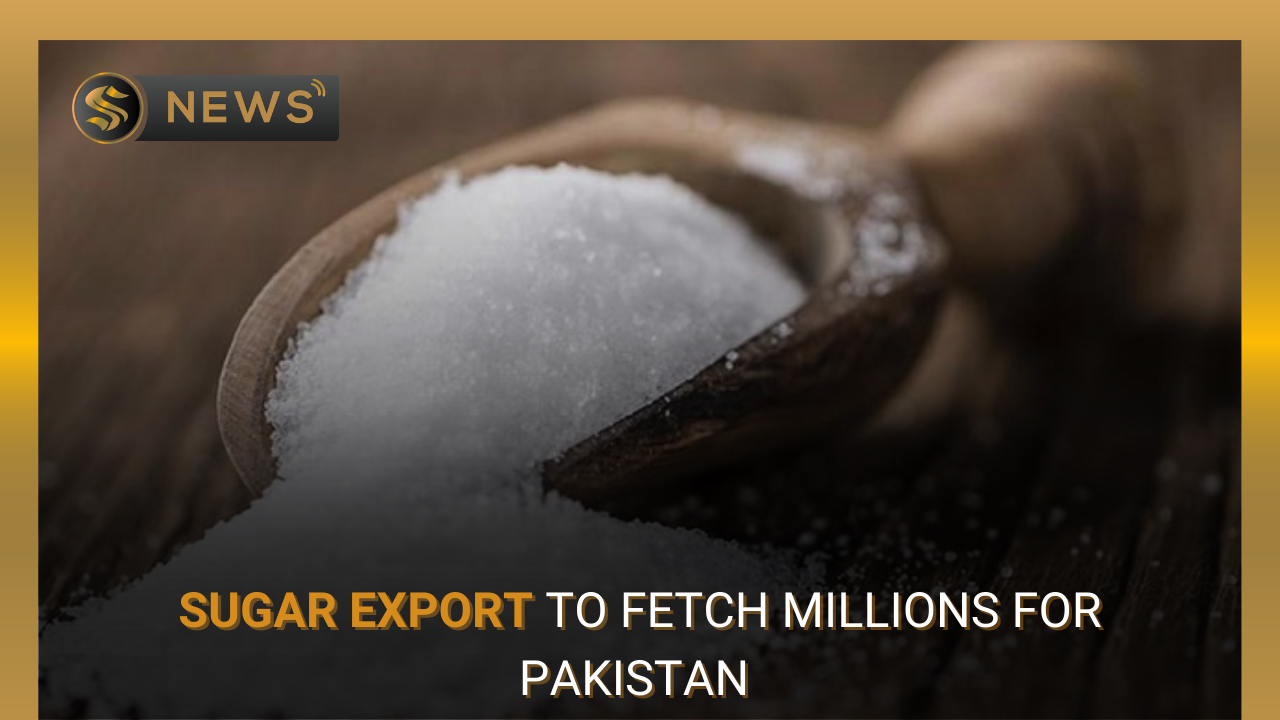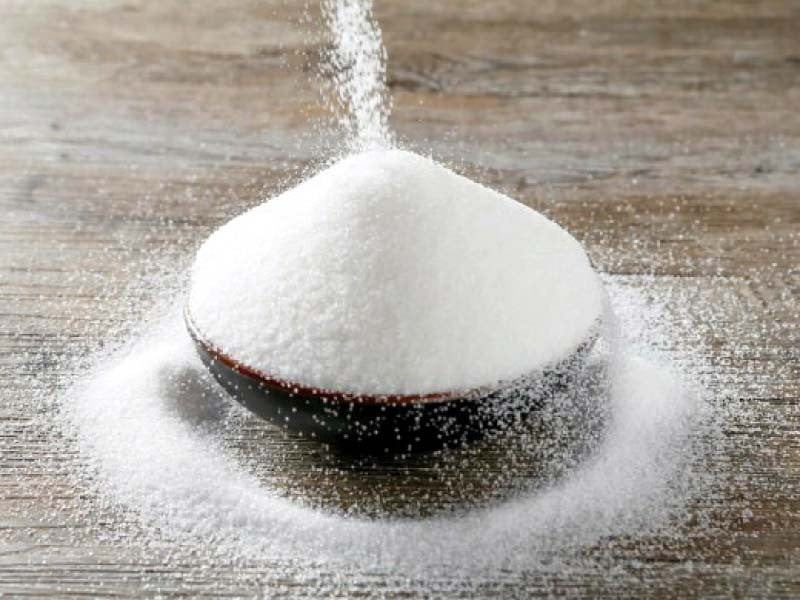
Share This Story, Choose Your Platform!
Millers Get a Nod from Government to Export Sugar
As an attempt to provide aid to the collapsing economy of Pakistan, the government has given a nod to the millers, to start exporting sugar starting this year.
Millers Meeting with Ishaq Dar
During a recent meeting with Dar, the millers, in the presence of representatives of the Ministry of National Food Security and Research, put forward their financial concerns to the government.
As a result, the government would permit the export of 100,000 tons, according to sources, given the state of the stocks and the beginning of the sugarcane crushing season. According to a representative of the Ministry of National Food Security, there was also a suggestion presented in the meeting that an export of 150,000 tons might also be permitted.
Financial Benefits
The Economic Coordination Committee (ECC) of the government will decide on the final take regarding sugar export and the quantity. The millers can make at least $53 million, or around Rs. 12 billion, by exporting 100,000 tons. The choice represents a change from the government’s stance from one week prior, when it denied sugar millers’ requests for the export of one million tons on the grounds that surplus stocks could not be independently verified.
The assertion that there were around 1.065 million tons available in the country was disputed last week by Tariq Bashir Cheema, Minister for National Food Security and Research. The government would not approve the shipment unless the stocks were independently verified, he continued. The ministry and the minister in charge of food security have finally agreed to support the sugar export proposal.

Downsides
There were speculations that the shipment might lead to a rise in sugar prices in the country. In the discussion, it was considered how recent choices may have caused the prices to rise to Rs. 110 per kg. According to sources, the administration was worried that if sugar exports were permitted, domestic market prices would rise, something they could not afford at a time of increasing political uncertainty.
It was also suggested that if prices increased above Rs. 110 per kg, the export authorization should be revoked. In the previous week, the Pakistan Bureau of Statistics (PBS) presented a report regarding the matter and stated that the price has stayed at Rs. 100 per kg. However, after the Punjab government increased the price of sugarcane by 33% to Rs. 300 per 40 kg, prices are going to rise inevitably.
Producers wonder how pricing can stay the same even after following a 33% increase in input costs. They assert that at a price of Rs. 300 for 40 kg of sugarcane, the cost of production will be Rs. 105 for the northern mills that are more productive and Rs. 115 for those that are less productive. Pakistan Sugar Mills Association (PSMA) has warned that they won’t begin the sugarcane crushing season until 1 million tons of exports are permitted.
An Estimate of Sugar Consumption in Pakistan
According to estimates, Pakistan consumes 596,000 tons of sugar on average every month, and as of November 15th, there was just enough supply to last for 54 days. According to the government’s assessment, the sugarcane crop had sustained extensive damage. Thus, production would be 260,000 tons fewer than needed for consumption the next year. The millers countered that they would yet have a surplus of 750,000 tons. Furthermore, the farmers haven’t been able to sow wheat due to the recent climatic chaos that could provide problems for food security because the crushing season still hasn’t started yet.
Some millers were still hesitant to begin crushing because they expected to lose money after the price hike for sugarcane. According to a formal statement released by the Ministry of Finance, in a meeting Finance Minister, Ishaq Dar assessed the country’s current stock position and anticipated future demand. The ministry claims that it was informed that there were adequate supplies available for future consumption.

Advent of Crushing Season
According to officials in the ministry, it was also informed that the mills had begun crushing sugarcane in Sindh and Punjab. However, the production in Sindh would be lower than last year due to the recent floods experienced by the region. Dar also expressed his pleasure with the output and availability. He further emphasized the significance of keeping strategic stocks in hands and maintaining the prices at their current levels in order to maximize relief for consumers.
Takeaway from the Convention
Consequently, the decision to allow the export of sugar was endorsed by the government. However, there was a condition that came along. It was suggested that the Sugar Factories Control Act of 1950 be amended without imposing an import ban. Nonetheless, for export, the supply levels will be watched in order to export the product.
Only if there is a surplus amount available for domestic consumption will exports be taken into consideration. The committee indicated that the government will not grant any export subsidies, in contrast to the government’s prior decision to support sugar exports.
The government has also attempted to constrain millers for crushing sugarcane within the deadlines through the proposed deregulation. The provincial government would set a date through modifications to the Factories Control Act of 1950, and millers would be fined if they disobeyed. Additionally, the proposed penalties of Rs. 5 million and 12 months in jail will be imposed to those who fail to comply by the decision.



